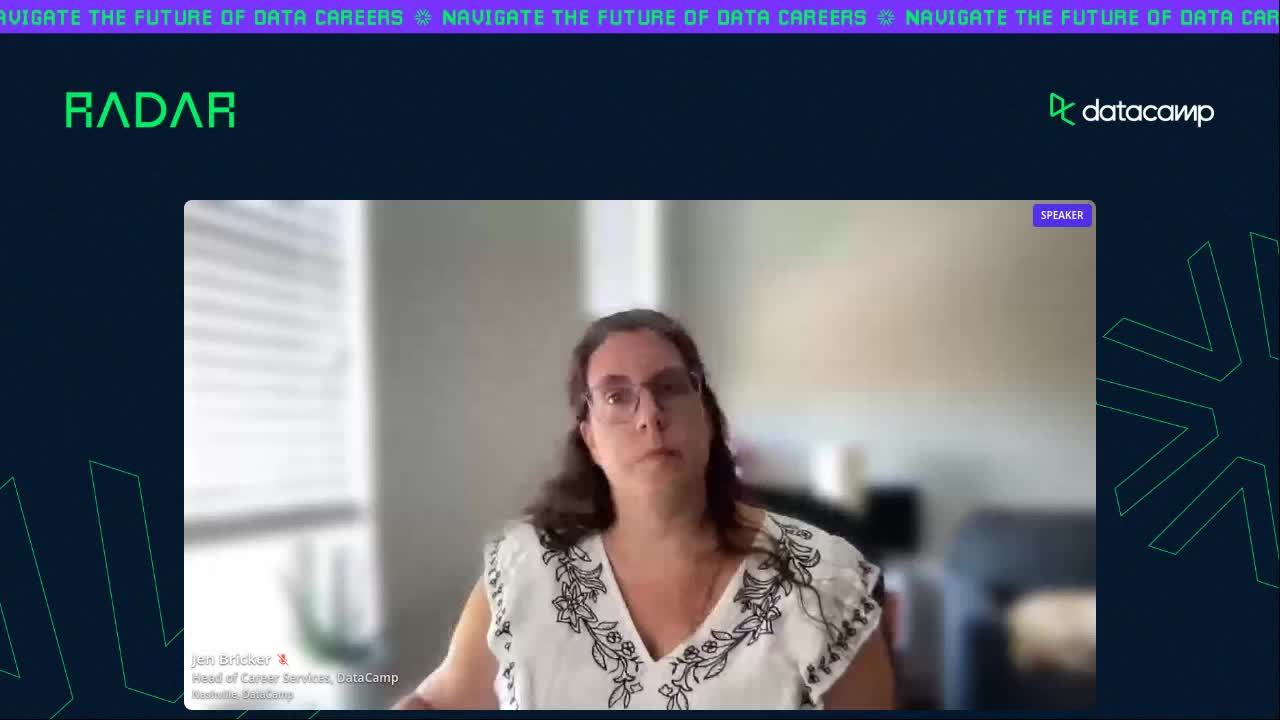Accéder au contenu principalPour les entreprises





Haut-parleurs
Formation de 2 personnes ou plus ?
Donnez à votre équipe l’accès à la bibliothèque DataCamp complète, avec des rapports centralisés, des missions, des projets et bien plus encoreConnexe
webinar
Radar—Breaking Through The Noise: Starting a Career in Data in 2022
Discover the landscape of data jobs available today, and the roadmap to success.webinar
Radar—Acing the Data Science Interview
Discover how to approach technical interviews for data roles.webinar
Radar—Create Awesome Portfolio Projects To Land Your Dream Job
Discover key strategies for creating a winning data science resume.webinar
Radar—Acing the Data Science Resume
Discover key strategies for creating a winning data science resume.webinar
Radar—Ask a Hiring Manager: How to Land a Job in Data Science
Learn the key tactics that can help you stand out from the crowd.webinar
Radar—Keynote—Building the Data-Driven Workforce of the Future
The challenges individuals and organizations face in the era of data fluency.Join 5000+ companies and 80% of the Fortune 1000 who use DataCamp to upskill their teams.
Loved by thousands of companies


